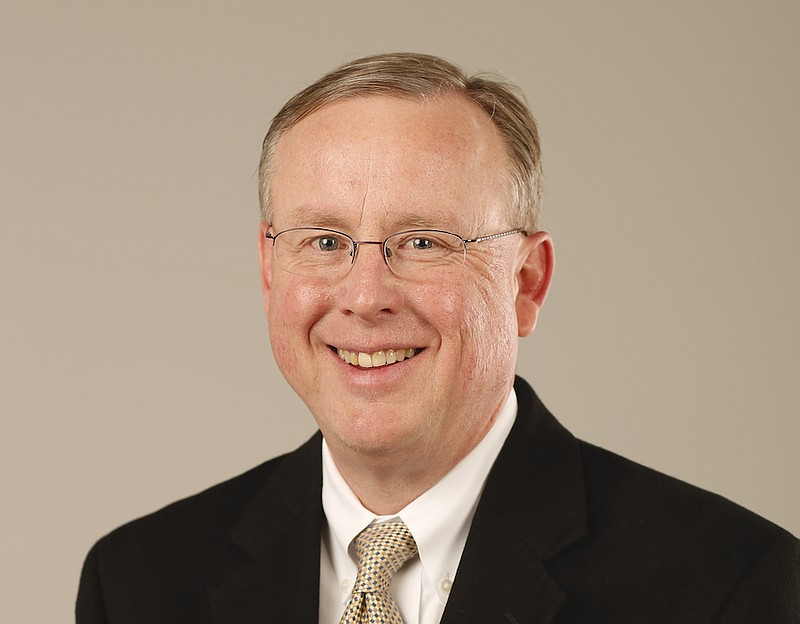In Sunday School class we've been talking about what we learned from our parents — and, in turn, what we owe them back.
Our class is made up of baby boomers and Gen Xers. Most of us have teenage and/or young-adult children. As they leave the nest, we talk more and more about our parents. Twenty years ago, we talked about diapers and day care.
The class serves as a support group. We joke that we started out as the "young adults" class, and now some of us are eligible for Social Security. We've spent the majority of our adulthood gathering around a table at 10 a.m. on Sunday mornings. These decades-long friendships are high on my list of things to be thankful for.
I mentioned in Sunday School last week that both of my parents are deceased. My dad died 30 years ago this summer, and my mom passed away 17 years ago this month. I told the class that one of my biggest regrets is not recording interviews with my parents before they died.
It's a paradox that when parents are ready to talk about themselves, their kids are not interested. And then when children are finally interested in knowing more about their parents, the parents are sometimes gone.
(READ MORE: Southtree captures memories trapped in old media)
A thought: If we can take selfie pictures, why can't we do selfie interviews?
I found a list of questions online designed to ask one's parents. Neither of our sons would be inclined to interview me today, but there's nothing that says I can't interview myself (and share the thoughts later). I may just print out this column and put it in our lockbox.
Here we go. I'm imagining myself sitting down at the kitchen table and one of my sons earnestly asking these questions.
1. How did you become who you are?
Oh, wow. I overcame an anxious childhood by chancing into a career that ultimately offered me a peculiar kind of therapy: Talking to other people about their lives.
I discovered that nearly everybody is anxious, and that the only way we can overcome anxiety is to talk it out. Over time, I developed enough confidence to share my thoughts and feelings with other people. And now I teach a college writing class that emphasizes gaining confidence -- one baby step at a time.
2. What is your sense of how you were parented?
Hard, and then softly, and then barely at all.
Parents of my dad's generations were stoic, but committed to teaching their children self-discipline. Rule-following was demanded and enforced. It was the era of corporal punishment.
I never doubted that my parents loved me, but we didn't have a close relationship. I think I was 18 before I had anything approaching a heart-to-heart conversation with my dad.
By the time I went off to college, I think they believed their parenting duties were essentially complete, and by the time I left college I never really saw them as an emotional resource.
Partly as a result, I was virtually friendless and parentless in my 20s, and I did not thrive in my personal life. Now, at 64, I think about my parents daily. At 24 -- I'm ashamed to say -- they rarely crossed my mind.
3. What tips did you gain from your parents that inspired you in becoming my parent?
"Show, don't tell" is a great rule for life.
I learned about virtue by watching my parents live their lives, not hearing them share their beliefs. My dad, though disabled, picked out people in worse physical shape to help. I remember he helped a man who was a blind, double amputee find work. Dad never talked about his faith, but his actions spoke volumes.
My mother was a kindhearted, hard-working woman who was loyal to my dad. She was the head teller at one of our town's biggest banks. I learned the practical value of being cheerful and well-liked. I also inherited her sentimentality, which is both good and bad.
4. Do you remember something impactful that happened as a child?
I think watching my dad suffer from chronic pain and dependency on prescription drugs made me sad and anxious. He was a combat veteran with no way to unpack his traumas. It amazes me that mental health is so openly discussed now, but in the 1960s many people like my dad led "lives of quiet desperation," as writer Henry David Thoreau phrased it. (Actually, many still do.)
5. What's your favorite thing about yourself?
Ha. That I've survived to be 64 years old and that I have a great family. Also, I am kind to dogs, and I'm still about 10 percent a doofus.
6. What do you feel like you needed from your parents that you did not get?
Emotional support and problem-solving skills. And maybe a few more "I love yous" from Dad.
7. What was your relationship like with your grandparents?
Almost nil. I didn't know either of my grandfathers, and I knew my grandmothers only a little when I was young -- mostly as baby sitters.
8. What was the most difficult loss you've experienced?
This is going to sound trite, but I badly chipped one of my front teeth when I was about 7 years old and didn't get it fixed until I was about 18. Consequently I didn't smile much for 10 years. I think it made me shy.
9. How did you feel the day I was born?
Exhilarated. Completed. Terrified.
10. Is there anything about you parenting me that you would've changed?
No. As imperfect as my parenting has been, I've always led with love.
Oh, one thing I might change. I wish I would have shut my mouth at your soccer games.
Contact Mark Kennedy at mkennedy@timefreepress.com or 423-757-6645.
